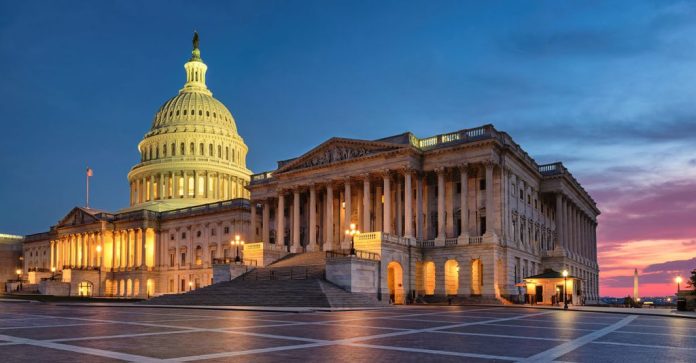
By Stacy M. Brown, NNPA Newswire Senior National Correspondent
When the 118th Congress started on Jan. 3, Americans had the slimmest hope that lawmakers would pass any essential laws.
Instead, experts, people who follow politics, and the public have every reason to think there will be gridlock in 2023 and maybe even after that.
With Democrats controlling the Senate and Republicans enjoying the majority in the House, much of any bill or other action signed by President Joe Biden would likely come in the form of executive orders.
“The first three months of next year, we should all just kind of avert our eyes. There’s a tremendous amount of pent-up aggression,” Jason Grumet, president of the Bipartisan Policy Center, said in a recently published interview.
Americans, Grumet declared, should expect a bumpy start to the new Congress.
But once the growing pains subside, Grumet argues there is room for cooperation and productivity.
“There will be some very angry moments, but there will also be some quiet, competent moments that I think will advance a national policy agenda,” said Grumet.
Lawmakers could find common ground on issues like homelessness, mental health, immigration reform, and more, Grumet continued.
Still, he does not expect grand legislative victories to go down in the history books.
The new Congress includes 89 incoming representatives, the largest first-year class in three decades.
The House plans 30 weeks of sessions in the new year, and Republicans may use much of that to investigate Biden and his son, Hunter.
Radicals like Republican Marjorie Taylor-Green of Georgia and Lauren Boebert of Colorado want the House to consider impeaching Biden, citing America’s troop withdrawal from Afghanistan in 2021 and the president’s immigration and border policies.
Meanwhile, House Democrats will have new representation, led by New York Rep. Hakeem Jeffries, the first African American to lead a major party in the history of Congress.
According to a Pew Research Center study, 65% of American adults think Biden will fail to pass any of his initiatives over the next two years.
Approximately 61% said they also expect the GOP to fall short of its goals.
Only 8% of respondents said they expect relations between Republicans and Democrats to improve in 2023.
About 48% of Democrats and Democratic-leaning independents said Biden would do well in the next two years.
Meanwhile, 44% of Republicans and those who vote Republican expect GOP leaders in Congress to pass their programs into law.
“These first two years were under full Democratic control. A number of the big-ticket items were voted along party lines, so just Democrats passed those for Biden,” Laura Barrón-López, the White House Correspondent for the PBS NewsHour, said during a broadcast this week.
“That includes, of course, the big COVID response funding at the beginning of his presidency and then, more recently this year, the Inflation Reduction Act, which was that big Democratic wish list bill that had climate change, action, and prescription drug reform, as well as, of course, Affordable Care Act subsidies,” Barrón-López continued.
She said that Biden likes to talk about bills passed with support from both parties. She also said that the president has a long list that fits that category.
“And this is not an exhaustive list, but it includes investment in semiconductor manufacturing—that’s the big China competitiveness bill—expansion of health care for veterans that were exposed to burn pits, the big bipartisan infrastructure bill that was passed with a number of — like, big negotiations that went on for a long time, gun safety, protections for same-sex marriage, Ukraine aid, and averted a rail strike,” Barrón-López added.
“So, all of these were major bipartisan bills that the president really tried to champion, saying, ‘Look, a lot of people doubted that I could work with Republicans,’ and yet he did during his first two years.”
While the 117th Congress concluded with the passing of a bill to replace a bust of former U.S. Supreme Court Chief Justice Roger Taney with Thurgood Marshall, the first Black U.S. Supreme Court Justice, members of the 118th Congress will still traverse a building that contains paintings and statues that honor 140 enslavers.
“In removing Taney’s bust, I’m not asking that we would hold Taney to today’s moral standards,” said Maryland Democratic Rep. Steny Hoyer.
“On the contrary, let us hold him to the standard of his contemporaries: Harriet Tubman,
Frederick Douglass, Abraham Lincoln, and all of those who understood that the enslavement of others has always been an immoral act.
“Figures like Taney belong in history textbooks and classroom discussions, not in marbled bronze on public display of honor.”



